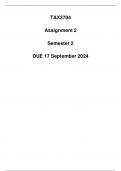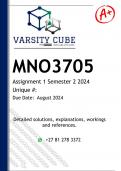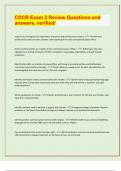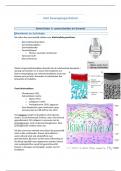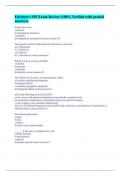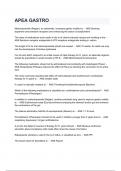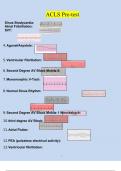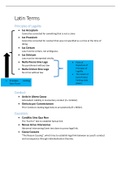Exam (elaborations)
TAX3704 Assignment 2 Semester 2 (Detailed Answers) Due 17 September 2024
- Course
- Tax Administration
- Institution
- University Of South Africa
The Question Question 1: (35 marks) Background information Your best friend Ntato Hill called you and asked for assistance regarding an audit SARS is conducting on her husband, Jack’s business. The following information may or may not be relevant. • Jack Hill is 70 years old and runs a b...
[Show more]
